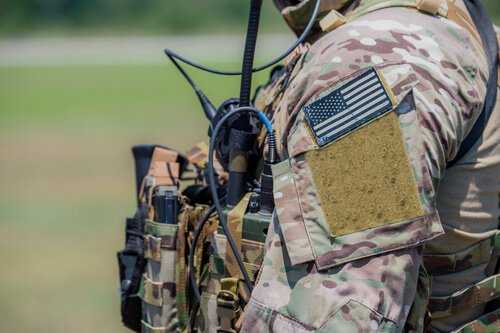Agent Orange Exposure in Areas Other than Vietnam
Posted by
Marketing
on
April 24, 2017 in
Veterans Disability
Most veteran’s think of Vietnam when they think of Agent Orange exposure. But if you did not serve in Vietnam, you still could have been exposed to herbicides such as Agent Orange and get service connected for Agent-Orange related disabilities.
Agent Orange Korea (April 1, 1968 to August 31, 1971)
The federal government sprayed several places with Agent Orange, including Korea. The Department of Defense (DOD) has estimated that approximately 12,000 American military service members were exposed to Agent Orange while serving in Korea during the Vietnam War. The DOD has identified the following units that served along the Korean demilitarized zone (DMZ) that were exposed to Agent Orange between April 1, 1968 and August 31, 1971:
- Combat Brigade of the 2nd Infantry Division
- 1st Battalion-72nd Armor, 12th Artillery 15th Artillery, 9th Infantry, 23rd Infantry, 38th Infantry
- 2nd Battalion-72nd Armor, 9th Infantry, 23rd Infantry, 31st Infantry, 38th Infantry
- 3rd Battalion-23rd Infantry, 32nd Infantry
- 5th Battalion-38th Artillery
- 6th Battalion-37th Artillery
- 7th Battalion-17th Artillery
- 3rd Brigade of the 7th Infantry Division
- 1st Battalion-73rd Armor, 17th Infantry, 31st Infantry, 32nd Infantry
- 2nd Battalion-17th Infantry, 31st Infantry, 32nd Infantry
- 3rd Battalion-32nd Infantry
- 2nd Squadron-10th Cavalry
- Division Reaction Force
- 4th Squadron, 7th Cavalry, Counter Agent Company
- 2nd Military Police
- 13th Engineer Combat Battalion
- United Nations Command Security Battalion-Joint Security Area (UNSCB-JSA)
- Crew of the USS Pueblo
While the above units have been specifically identified as having served in the Korean DMZ between April 1, 1968 and August 31, 1971, if you served in and around the Korean DMZ outside of this time period and have evidence that you were exposed to Agent Orange during your service in Korea, you may still qualify for compensation benefits for Agent-Orange related disabilities.
Agent Orange Thailand (February 28, 1961 to May 7, 1975)
Agent Orange and other herbicides were used in Thailand between February 28, 1961 and May 7, 1975. If you served in Thailand during this time period, the VA concedes that you were exposed to Agent Orange or other herbicides if you fit within any one of the following:
- Air Force Veteran who served at the Royal Thai Air Force Bases of U-Tapao, Ubon, Nakhon Phanom, Udorn, Takhli, Korat or at Don Muang as security policemen, security patrol dog handlers, or members of a security police squadron, or otherwise served near a base perimeter as evidenced by their MOS duties.
- Army Veteran who served on a Royal Thai Air Force Base who affirmatively state that they were involved with perimeter security duty as long as there is additional evidence to corroborate their statement.
- Veteran who served at U.S. Army base in Thailand were members of a military police unit or assigned a military police MOS and who affirmatively state that their duty placed them at or near the base perimeter.
While the VA concedes that you were exposed to Agent Orange if you served in Thailand in one of the above capacities, you may still qualify for Agent Orange compensation benefits if you can show that you were otherwise exposed to Agent Orange while serving in Thailand.
Agent Orange Exposure in Other Specific Areas
DOD has confirmed that Agent Orange was also stored or sprayed in the following areas:
- Fort Drum, New York in 1959 (testing)
- Fort Richie, Maryland in 1963 (testing)
- Thailand from 1964 to 1965 (testing)
- Replacement Training Center of Royal Thai Army near Pranburi from 1964 to 1965
- Laos from December 1965 to 1967 (spraying operations)
- Loquillo, Puerto Rico in April and October 1966 (testing)
- Hilo, Hawaii in December 1966 (testing)
- Kauai, Hawaii in 1967 and February 1968 (testing)
- Las Marias, Puerto Rico from February to December 1967 (testing)
- Apaloachicola National Forest near Sophoppy, Florida in May 1967 (testing)
- Fort Chaffee, Arkansas in May, July and August 1967 (testing)
- Base Gagetown, near Fredericton, New Brunswick, Canada in June 1957 (testing)
- Fort Gordon, Georgia in July 1967 (testing)
- Eglin AFB, Florida from June to September 1968 (testing)
- The Southeastern part of Kompong Cham Province and Dar and Prek Clong plantations, Cambodia in June 1969
- Poole’s Island, Aberdeen Proving Ground, Maryland in July 1969 (testing)
- Gulfport, Mississippi 1968 to 1970 (Agent Orange storage area)
- Johnston Island from April 1972 to September 1977 (Agent Orange storage area)
It has also been alleged that Agent Orange was present in the Panama Canal Zone from the 60s to the early 70s and in Guam from the mid 50s through the 60s. While the DOD has confirmed that Agent Orange was sprayed in the areas listed in the section above, the VA does not automatically grant service connection for exposure to Agent Orange in these areas. If you served in one of the areas above, you still need to prove that you were actually exposed to Agent Orange in one way or another.
The veterans benefits attorneys at the Berry Law have helped many veterans who served outside of Vietnam receive benefits for exposure to Agent Orange. If you served in an area other than Vietnam and you were exposed to Agent Orange, please contact the Berry Law at (888) 883-2483. We can help you develop your veterans benefits claims for service connection and veterans benefits compensation.
